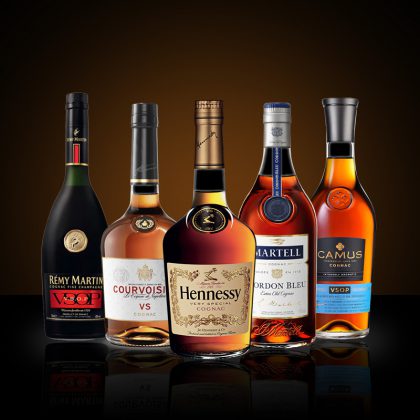Indulging in a glass of cognac is an exquisite experience.
Whether you’re a connoisseur or just starting your journey into the world of fine spirits, knowing how to pronounce, spell, and write the word “cognac” is essential.
This guide will demystify navigating this French gem, ensuring you can confidently articulate and express your passion for this remarkable spirit.
Table of contents
How to pronounce cognac?
Pronouncing cognac correctly adds an air of sophistication to your conversation.
The word is pronounced as “kohn-yak” or “kon-yak,” emphasizing the first syllable. Imagine the “kohn” resembling the English word “cone” and “yak” rhyming with “back.” Remember to pronounce it with a soft “g” sound.
in French it’s: kɔɲak
in English it’s: /ˈkɒnjæk/ KON-yak
also in US: /ˈkoʊn-jæk, ˈkɔːn-jæk/ KOHN-yak, KAWN-yak
Sometimes, famous US rappers like Young M.A or Snoop Dogg, use to pronounce cognac: yak.
How to spell cognac?
When writing the word “cognac”, it’s crucial to maintain its correct spelling:
The term is “c-o-g-n-a-c”, with no variations or additional letters.
How to write cognac?
There’s 2 ways to write it:
Merci
cognac or Cognac
Note that “cognac” is a common noun, so typically it should be written in lowercase.
But it can take a capital letter because of the reserved appellation (AOC) or when used at the beginning of a sentence, but it can be pretty confusing with the city’s name (Cognac).

Writing and talking about cognac
Providing context and showcasing your knowledge of this delightful spirit is essential when writing about cognac.
Here are a few tips to enhance your writing:
Descriptive Language
Cognac is often associated with elegance, luxury, and sophistication. Incorporate these qualities into your writing by using descriptive language. Describe its rich amber hue, fragrant aromas of dried fruits, and velvety smoothness on the palate.
Historical Significance
Delve into the rich history of cognac, mentioning its origins in the Cognac region of France, where the spirit has been crafted for centuries. Emphasize its ties to tradition, craftsmanship, and the savoir-faire of the region’s distillers.
Tasting Notes
When discussing specific cognacs, provide tasting notes to engage your readers. Describe the unique flavors they might encounter, such as hints of vanilla, oak, spices, or floral undertones.
This will allow your audience to imagine the sensory experience and appreciate the complexity of this remarkable spirit.
Engaging with Cognac Lovers
Writing about cognac is an opportunity to connect with fellow enthusiasts and spark meaningful conversations.
Here are a few suggestions to engage with cognac lovers:
Share Personal Experiences
If you’ve had memorable encounters with cognac, don’t hesitate to share your personal stories. Whether it’s an unforgettable tasting at a distillery or a cherished moment celebrating with friends, anecdotes add a personal touch to your writing.
Cocktail Culture
Cognac is not only enjoyed neat but also serves as a base for exceptional cocktails. Explore classic cognac cocktails like the Sidecar or Sazerac and encourage your readers to try them.
Share recipes, tips, and recommendations to enhance their mixology skills.
Food Pairings
Cognac pairs wonderfully with various dishes, complementing flavors and elevating dining experiences. Offer suggestions for food pairings, such as dark chocolate, cheese, or even a fine cigar, and explain how these combinations enhance the overall tasting experience.
The most common miswriting for cognac
- conhac
- congac
- congnac
- cogniac
- cogniacs
- cognnac
- cohnac
- conac
- conaque
- congna
- conhaque
- coniac
- coniaque
- connac
- conqac
- conquak
- conyac
- cgnac
- cobnac
- cogbac
- cognag
- cognav
- cognc
- kognac
- konac
- koñac



